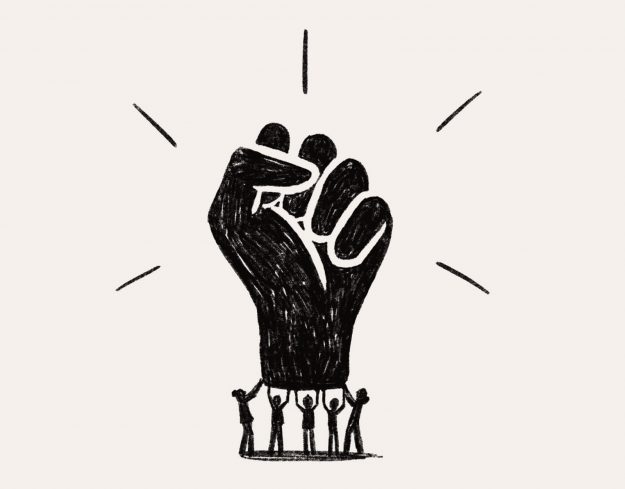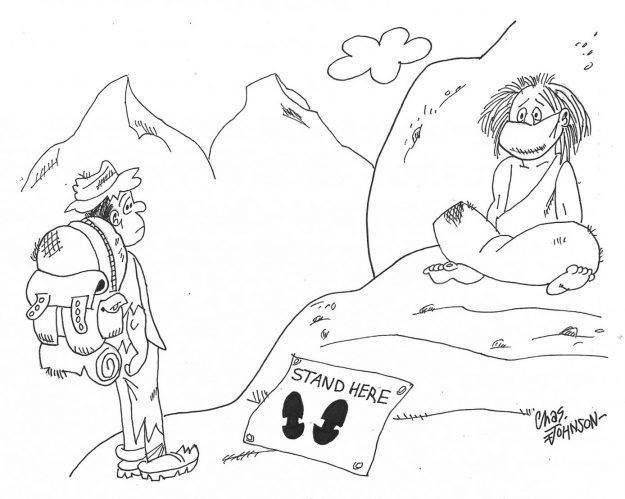In the cover story for the Fall 2020 issue, Stephen Batchelor asked whether or not Buddhism’s traditional philosophical framework could adequately address the perils facing humanity in the 21st century—chief among them climate change (“Embracing Extinction”). The writings of this pioneer of secular Buddhism can be controversial, and his article received both praise and criticism from our readers, sparking several debates on social media. “Another gem not to miss,” wrote Bodhivata Dharmashanti on Facebook. “Stephen’s incredibly acute ability to dissect what has been taken for granted for centuries calls for coining a new word.” Reader Gary Dean responded by suggesting, “How about ‘clarity’?”
Shreyan Sen appreciated Batchelor’s warning not to reduce Buddhist practice to techniques that can fix the problem of human suffering. Such a “capitalist mindset,” Sen wrote, is destructive and “makes all things subservient to economic growth rather than human flourishing.”
A number of readers agreed with Batchelor’s essay but took issue with the fact that he used as one of his sources the 20th-century German philosopher Martin Heidegger, who was a member of the Nazi Party from 1933 through the end of World War II. “I have the greatest admiration for Stephen Batchelor … but my heart sank as I read this piece and came across the name ‘Heidegger,’” Ken Bandes wrote.“Batchelor notes that Heidegger ‘did not develop an ethical and social dimension in his thinking.’ It’s a good deal worse than that: the ‘social dimension’ in Heidegger’s thinking was precisely Nazism. After the publication of his Black Notebooks, this is an inescapable fact.” (The publication of Heidegger’s private journals, beginning in 2014, revealed anti-Semitic beliefs closer to the core of his thinking than had previously been thought.) “Surely,” Bandes added, “there are better sources of wisdom.”
Stephen Batchelor responds: In Buddhism, the first of the four reliances declares: Don’t rely on the person; rely on the teaching. While deploring Heidegger’s anti-Semitism and Nazi sympathies, I continue to find his philosophy a source of inspiration and insight. Forty years ago I met the philosopher Emmanuel Levinas, a Jewish student of Heidegger’s, who told me that although he “detested” Heidegger for having been a Nazi, he considered him one of the five greatest philosophers who had ever lived. My Son [Zen] teacher, Kusan Sunim, often said: “If someone holds up a lamp to illuminate the path on a dark night, it doesn’t matter if he is a murderer or thief.”I would love the world to be a less messy and ambiguous place, but unfortunately it isn’t.
Noelle Oxenhandler’s review of Chanel Miller’s memoir, Know My Name (“Once She Was Grass”), illustrated how the artist and author has transcended her public image as the victim of a Stanford University student who in 2015 sexually assaulted her. Miller, Oxenhandler wrote, “has let us know that [her identity] is something vastly more fluid and multiple.”
“Complexity exists in all of us,” said reader Elizabeth James—even in Aaron Persky, who as a California judge in 2016 sentenced assailant Brock Turner to only six months in jail for the sexual assault and attempted rape of Miller while she was unconscious. (Turner was released after three months.) Persky was later recalled by voters. James said she knew Persky and that he was “one of the most conscientious, thoughtful, and bleeding-heart liberal people” and not a “monster who dismissed women and supported sexual predators.
“People knew his lifetime of service only through this one decision, but that’s all that mattered. The torches and pitchforks came for him, demanded his head, and that was that.”
According to Buddhist teachings, no one should be barred from receiving compassion, and every being’s complex nature deserves to be seen. But we note that Persky was in a position of power when the voters of Santa Clara County deemed him unfit for what they considered an egregiously unjust sentencing.

In “How to Fight Without Hating,” Insight Meditation teacher Valerie Brown suggested ways to apply Buddhist teachings on lovingkindness and compassion to the fight for social and racial justice. She said hatred and ill-will are karmic seeds that will continue to grow unrestrained unless we tend to them through our thoughts, speech, and deeds.
Justin Whitaker, senior correspondent for the website Buddhistdoor Global, thanked Brown for penning the article and said that he wished her words would “ripple through the world and bring us all benefit, along with perhaps a bit of ‘good trouble.’”
In July, scholar and author Charles Johnson joined the Tricycle Talks podcast for a conversation about his book Grand: A Grandparent’s Wisdom for the Next Generation (excerpted as “May Our Grandchildren Break Free”).
Johnson—a philosopher, essayist, cartoonist (see p. 7), and award-winning novelist—shared his hope that young people may one day be free from dualistic thinking of “Self” and “Other.” Listener Bryan Dicus wrote of the episode (“Wisdom for My Grandson”): “I found myself glued to [Johnson’s] words. It all brought a lot of thought to my evening.”

The Question
What’s your favorite dharma movie?
The Matrix and The Truman Show. I like how both movies play with what we believe is reality and explore the holographic nature of that reality. One is a thriller, the other is comedy, but both show the courage needed to break free of the myth of certainty. Our universe is so full of surprises! —Ann Ahern Allen
Spring, Summer, Fall, Winter … and Spring is beautifully made and shows the quiet beauty of practice and Korean Zen Buddhism. —@JustThisZen1
I’ll second the nomination for Spring, Summer, Fall, Winter … and Spring. —Frank Quintiliani
The Holy Mountain is about moving past pitfalls of samsara into higher realms of thought and existence. It’s more of an experience than a straight narrative—an extremely powerful and transformative experience for the viewer. It’s a wild ride. —Li Sakurazukamori
Malila: The Farewell Flower depicts the life of two gay former lovers grappling with the impermanence of the things that they’ve held dear. Deeply meditative, the film’s time-fractured narrative makes demands on the viewer’s attention but is deeply rewarding. It gracefully treads the line between toughness and tenderness and between spirituality and sexuality. —Dominic Chua
For the next issue
If you could ask the Buddha one question, what would it be?
Email your brief responses to editorial@tricycle.org, post a comment on tricycle.org, or tweet us at @tricyclemag.
Thank you for subscribing to Tricycle! As a nonprofit, we depend on readers like you to keep Buddhist teachings and practices widely available.
